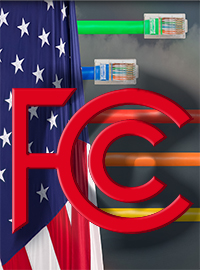| Biden FCC Brings Social Engineering to the Internet |
 |
|
By Timothy H. Lee
Thursday, November 09 2023 |
In today’s charged political environment, it’s important to avoid gratuitous hyperbole, lest one cultivate a “crying wolf” fatigue. It’s equally important, however, to recognize and sound the alarm on grave new policy threats, lest they take root and inflict further harm upon American consumers and our economy. Falling into that latter category of grave new threats is a Biden Administration Federal Communications Commission (FCC) proposal with the deceptively anodyne title “Prevention and Elimination of Digital Discrimination.” The best way to conceptualize this latest Biden Administration endeavor is to understand that it conveniently intertwines two of the most pernicious elements of its agenda: regulatory overreach and activist social engineering. Exacerbating matters, the FCC’s new proposal targets the internet service sector, which will only play an increasingly central role in our lives and economy long after Joe Biden exits the White House. Last month, the Biden FCC inexplicably reintroduced the so-called “Net Neutrality,” Title II regulation that proved objectively destructive when it was briefly imposed at the end of the Obama Administration before being rescinded by the Trump FCC. Believe it or not, this latest proposal may be even more expansive and destructive. For its part, the FCC rationalizes its new scheme by asserting that, “The rules we adopt today constitute an effective, balanced means to accomplish Congress’s objective of ensuring that historically unserved and underserved communities throughout the Nation have equal opportunity to receive high-speed broadband service comparable to that received by others, without discrimination as to the terms and conditions on which that service is received.” Sounds reasonable. But here’s the catch: The FCC’s draft order itself openly admits that “there is little or no evidence” in its record of any intentional discrimination in the broadband sector. So the order’s title claims to prevent and eliminate digital discrimination, but subsequently admits that it cannot find evidence of discrimination? Instead, the FCC trots out the discredited notion of “disparate impact,” which conceptually assumes that any real-world disparities must be the result of some hypothetical discrimination on the basis of race, religion, sex, national origin, age, disability or other protected category. Exacerbating matters, even courts that apply “disparate impact” theory allow defendants to justify the policy or practice in question by demonstrating that it serves a legitimate business necessity, such as a compelling business interest or job-related requirement. The FCC’s proposed order, however, goes so far as to eviscerate even that fallback defense. It is manifestly unfair to assume that any disparities in the real world result from pernicious discrimination in the absence of actual evidence. As FCC Commissioner Brendan Carr pointed out, however, that’s the mechanism by which the Biden FCC seeks to reorder the internet service sector: For the first time ever, those rules would give the federal government a roving mandate to micromanage nearly every aspect of how the Internet functions – from how ISPs allocate capital and where they build, to the services that consumers can purchase; from the profits that ISPs can realize and how they market and advertise services, to the discounts and promotions that consumers can receive. Talk about central planning. Needless to say, Congress never contemplated the sweeping regulatory regime that President Biden asked the FCC to adopt – let alone authorized the agency to implement it. … Never before, in the roughly 40-year history of the public internet, has the FCC (or any other agency for that matter) claimed this degree of control over it. Believe it or not, the FCC proposal gets even worse. Namely, as Commissioner Carr points out, the proposal would also regulate industries beyond the communications sector, such as landlords, construction crews, marketing agencies, banks and even government agencies that the FCC claims have a direct or indirect impact on broadband access. What should worry American consumers most is that the Biden Administration seeks this sweeping “fix” for an internet service sector that isn’t broken. Quite the opposite. As NCTA - The Internet & Television Association pointed out just this week, internet speeds have increased 260% since 2017, 89% of homes now possess gigabit speed availability and the inflation-adjusted price of broadband has decreased 12% since 2017. America’s internet sector is too important to become the subject of yet another Biden Administration social activism experiment. Courts have become increasingly intolerant of its regulatory abuses, and will likely throw this latest scheme out as well. The tragedy is that the Biden Administration insists on making it come to that. |
Related Articles : |
























